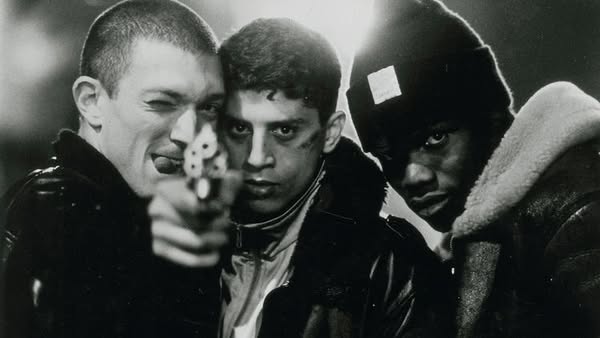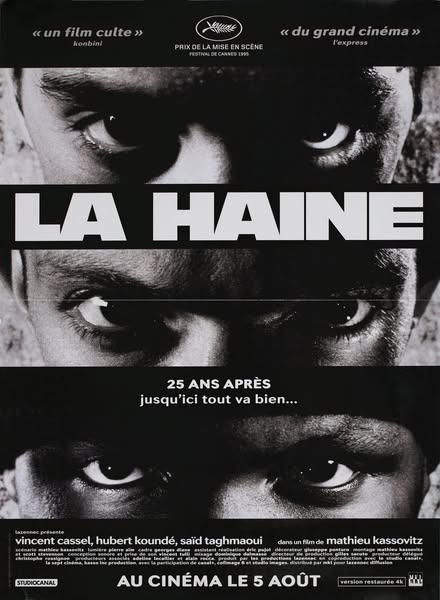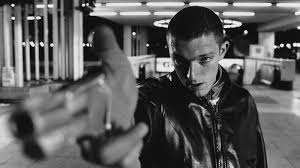La haine (1995)

La Haine (1995), directed by Mathieu Kassovitz, is a powerful and impactful French film that delves into themes of social unrest, urban violence, and the struggles of disenfranchised youth in the suburbs of Paris. The film is notable for its stark black-and-white cinematography, which enhances its gritty realism and emotional intensity.
The story follows three friends—Vinz (Vincent Cassel), Saïd (Saïd Taghmaoui), and Hubert (Hubert Koundé)—who come from a marginalized neighborhood plagued by poverty and racial tension. The narrative unfolds in the aftermath of a riot sparked by the police beating of their friend Abdel, who is left in a coma. As the trio navigates the challenges of their environment, they grapple with feelings of anger, frustration, and hopelessness.

La Haine is structured over a 24-hour period, showcasing the characters’ experiences as they confront the harsh realities of their lives. Vinz is particularly driven by a desire for vengeance against the police, while Hubert, a boxer, seeks a way out through self-improvement, and Saïd often acts as a mediator between the two. Their differing perspectives highlight the complexities of friendship and the varying responses to systemic oppression.

The film’s dialogue is sharp and engaging, filled with both humor and poignant reflections on society. Kassovitz’s direction is marked by a raw and unflinching portrayal of life in the banlieues, capturing the tension and volatility of the environment. The use of black and white not only emphasizes the stark contrasts in the characters’ lives but also serves as a metaphor for the moral ambiguities they face.
La Haine is also notable for its cultural significance, as it addresses issues such as police brutality, racism, and social inequality—topics that remain relevant today. The film’s iconic line, “jusqu’ici tout va bien” (so far, so good), encapsulates the sense of impending doom as the characters navigate their tumultuous reality.

The performances by the lead actors are compelling, with Cassel’s portrayal of Vinz being particularly memorable and intense. The chemistry between the trio brings authenticity to their friendship and struggles, making their experiences resonate with viewers.
In conclusion, La Haine is a striking and thought-provoking film that offers a raw glimpse into the lives of marginalized youth in France. Its exploration of social issues, combined with powerful performances and a distinctive visual style, has solidified its status as a classic in French cinema. The film serves as a poignant reminder of the consequences of societal neglect and the urgent need for dialogue and understanding in the face of injustice.











